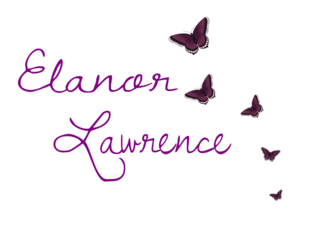If you’ve ever written anything in your life, chances are you’ve received feedback. This can range from a teacher’s scribbled notes in the margins of an essay, to a friend’s enthusiastic ‘I LOVE THIS!’ after reading a chapter of your story, to a professional editor’s suggested revisions on your novel. Writing, whether fiction or non-fiction, is a process intricately connected with receiving feedback. Getting comments and criticisms from teachers or peers is one of the best ways to improve your writing.
A professional novelist is going to get feedback of many different kinds, from crazy fans who absolutely love their work to book reviewers who hate it. That’s just the way things will be. There will always be someone who likes your work, and always someone who will hate it. I’ve seen stories in the top five on inkpop that I thought were absolute trash, but they had nothing but positive comments.
So, as a yet-unpublished novelist, what do you do with critiques?
 1. Develop a thick skin. Most people will give well-balanced critiques, but they will always be some who will completely bash your work. Get used to saying ‘It’s just their opinion’ and then learn from it.
1. Develop a thick skin. Most people will give well-balanced critiques, but they will always be some who will completely bash your work. Get used to saying ‘It’s just their opinion’ and then learn from it.2. Get more than one opinion. Sometimes people will have drastically different opinions, so it’s best to get as many as possible and kind of average them.
3. Pay attention to who is giving the feedback. Obviously, a professional agent deserves more attention than your six year old sister.
4. Even professionals can be ‘wrong’. When HarperCollins reviewed ‘Because You Laughed’ they said that changing the ending might make it better. However, everyone on inkpop liked the ending as it was. I’ve decided not to change it.
5. Don’t get too attached to your story. Especially if you started your story a long time ago, you may need to make major changes to both characters and plot, not just minor writing edits.
6. If (when!) you get negative critiques, give yourself a little time to rant about it, then go back and see what you can learn.
 Hopefully, if your critiquers are nice people, the reason they’re reading your story is to help you improve. Even the most negative critiques can come from people who are genuinely trying to help, but just went a little overboard. It’s then your job as the author to use their suggestions well and make your story stronger because of them. And remember... as the picture to the left says, the only way to avoid criticism is to stop writing.
Hopefully, if your critiquers are nice people, the reason they’re reading your story is to help you improve. Even the most negative critiques can come from people who are genuinely trying to help, but just went a little overboard. It’s then your job as the author to use their suggestions well and make your story stronger because of them. And remember... as the picture to the left says, the only way to avoid criticism is to stop writing. Over to you… any other tips for dealing with feedback? Do you have any stories about receiving critiques? I’d love to hear from you, so leave a comment!





This was really helpful, thanks.
ReplyDeleteGood post! This is very true, it took me forever to be able to handle negative critique and take it as help. At least now I know where to look first when I start editing again.
ReplyDelete